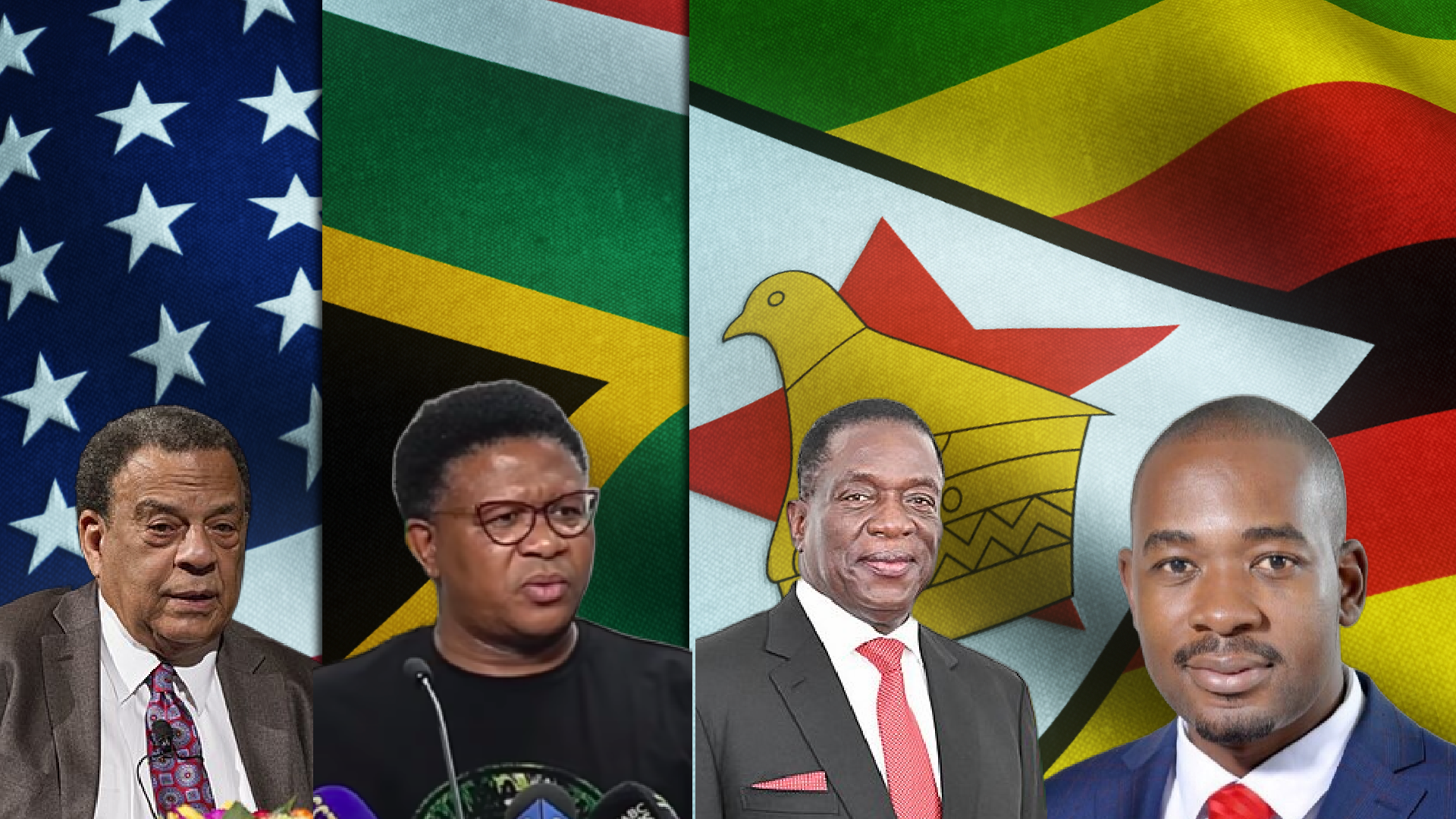Africa Agriculture America Author Guide Author Interviews Book Reviews Books Breaking News Business C2C Community Central Africa Classifieds Columnists Comedy Corporate Governance Corporate Literacy Culture East Africa Economy Editorial Education Entertainment Fashion FB Live Featured Feel Good Financial Week Food Health Investment Leadership Legal Literacy Life Coaching Lifestyle Literature Local Media Industry Mentorship Music News North Africa Opinion Photos Poetry Politics Small Business South Africa Southern Africa Sports Tech Tech Reviews Tech Updates THE EDITOR'S DIARY Tour Guide Tourism Travel Uncategorized Video Watch Party West Africa World Zimbabwe
iniAfricaPublished
1 year agoon

The issue of land reform in Zimbabwe has been a highly contentious and complex topic, with divergent opinions and narratives surrounding the promises made by international actors. In this article, we critically examine the contrasting perspectives presented by Andrew Young, an American politician and activist, and Fikile Mbalula, a South African politician, regarding Zimbabwe’s land reform funding promises. We aim to shed light on the implications of these statements and provide an enlightening analysis of the subject matter.
Andrew Young’s Perspective:
Andrew Young, a well-known figure in the civil rights movement and a former confidant of Martin Luther King Jr., claims that the United States and Britain promised substantial financial support for land reform in Zimbabwe. According to Young, the US pledged 75 million dollars annually for ten years, while Britain committed to one billion dollars. However, both countries allegedly reneged on their promises, leading to frustration and discontent among Zimbabwean authorities.
Young suggests that this broken commitment played a role in the decision by Zimbabwean President Robert Mugabe to initiate the land takeover. He also highlights that the number of casualties resulting from the land reform was relatively lower compared to ongoing violence in South Africa. Young’s remarks reflect his admiration for Zimbabwe and his desire to see positive developments in the country.
Fikile Mbalula’s Perspective:
Fikile Mbalula, a prominent South African politician and Secretary-General of the African National Congress (ANC), presents a different viewpoint on the matter. Mbalula acknowledges the implementation of reforms by President Emmerson Mnangagwa in Zimbabwe. However, he claims that Western powers persist in their agenda to install a puppet government led by Nelson Chamisa, the leader of the opposition party, the CCC (Committee for Change and Convergence).
Mbalula’s statement suggests that the Western powers’ alleged interference in Zimbabwe’s political affairs is a barrier to progress and genuine reforms. By characterizing the opposition as a puppet government, he highlights the challenges faced by the ruling party in achieving its goals amid external pressures.
Critical Analysis:
The perspectives shared by Andrew Young and Fikile Mbalula provide insights into the complex dynamics surrounding Zimbabwe’s land reform funding promises. Young’s remarks shed light on the broken commitments by the United States and Britain, which may have contributed to the decision to initiate land reforms in Zimbabwe. His comparison of the casualty figures between Zimbabwe and South Africa serves to contextualize the events and emphasize his fondness for Zimbabwe.
On the other hand, Mbalula’s assertions focus on the alleged interference of Western powers and their impact on the reform process. By highlighting the agenda to install a puppet government, Mbalula underscores the challenges faced by the ruling party and suggests that genuine reforms may be hindered by external influences.
It is crucial to approach these perspectives with a critical lens, considering the complex historical, political, and economic factors at play. The issue of land reform in Zimbabwe remains multifaceted, and the narratives surrounding it are subject to interpretation and debate. Further analysis and exploration are necessary to understand the broader implications and complexities of the situation.
Conclusion:
The differing perspectives of Andrew Young and Fikile Mbalula on Zimbabwe’s land reform funding promise provide valuable insights into the complexities surrounding this contentious issue. While Young highlights broken commitments by international actors and draws attention to the relatively lower casualties during the land reform, Mbalula emphasizes the external pressures faced by the ruling party in implementing reforms.
To fully grasp the dynamics of Zimbabwe’s land reform and its broader implications, it is essential to consider multiple viewpoints and engage in constructive dialogue. By critically analyzing these perspectives, we can gain a deeper understanding of the challenges and opportunities involved in the pursuit of a more equitable and sustainable future for Zimbabwe.
Scandal and Critique: President Ramaphosa Faces Rising Opposition
Workplace Challenge Programme Boosts SA Business Performance: Productivity SA Acting CEO
A New Era in Coordinated Climate Action Dawns as President Ramaphosa Assents the Climate Change Bill
Climate Commission to Hand Over South Africa’s First Ever State of Climate Action Report to Government
From Chalk to Consultancy: Tichaona Mupasiri Revolutionizes Education Solutions
Ambassador Linda Thomas-Greenfield Honors Nelson Mandela International Day




Warning: Undefined variable $user_ID in /home/iniafrica/public_html/wp-content/themes/zox-news/comments.php on line 49
You must be logged in to post a comment Login